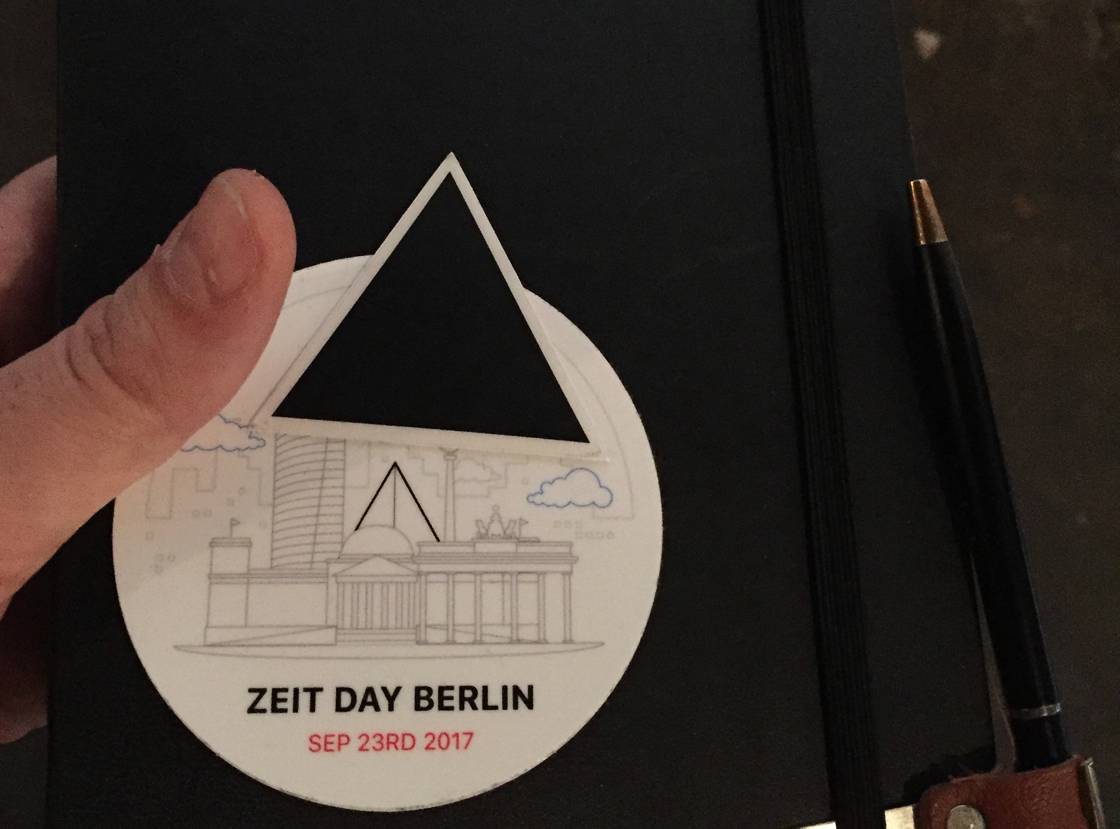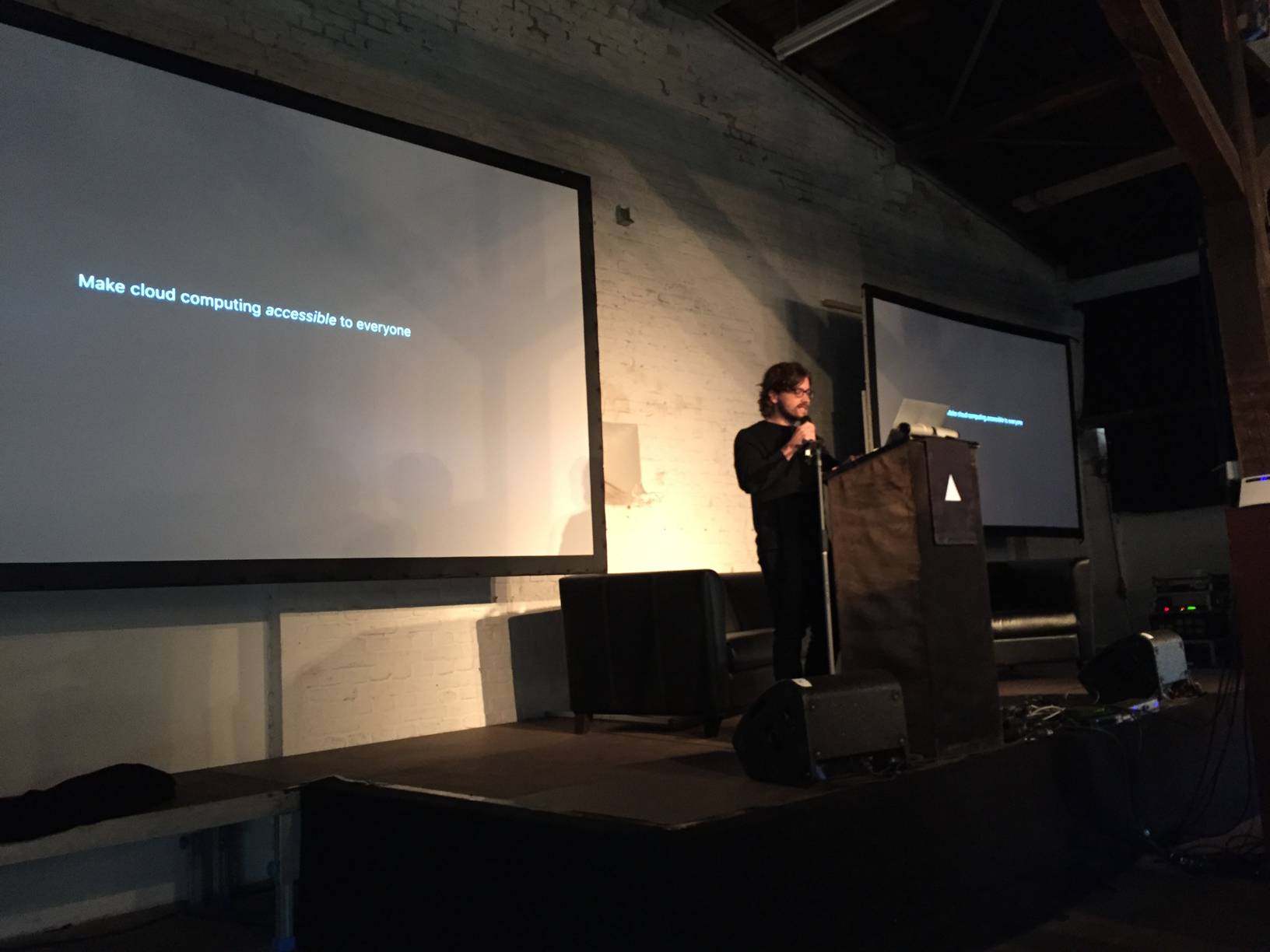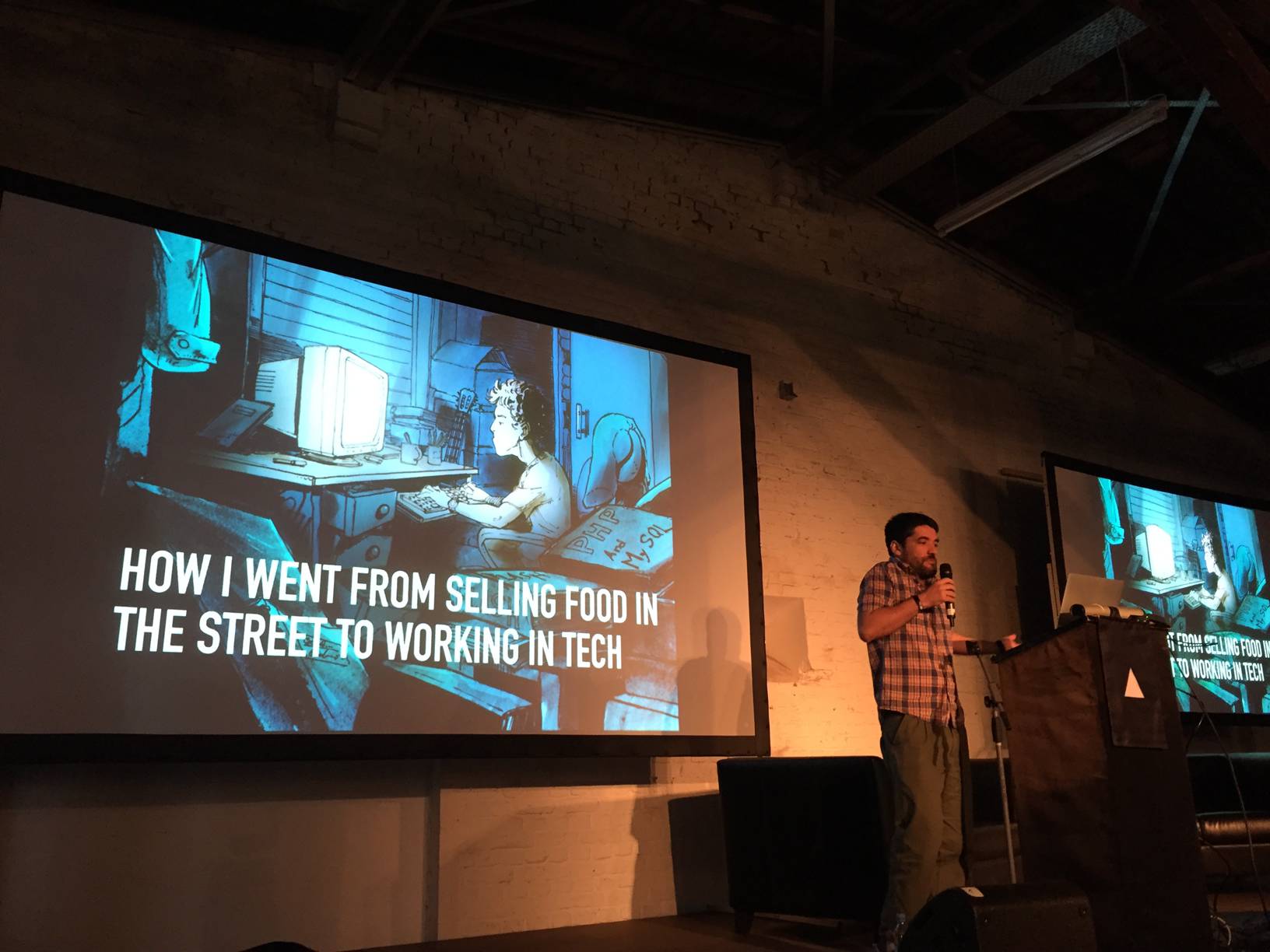What I Learned at Zeit Day Berlin
My account of the Zeit Day in Berlin, 23rd of September 2017

The author touting a black Zeit Triangle
Last Saturday, 23rd of September 2017, I had the pleasure to visit the Zeit Day Berlin, a 1-day conference hosted by the new, exquisitely minimalistic branded, black triangle touting cloud computing and open source company Zeit.
Here are some things I learned:

Guillermo Rauch - one of the Zeit Founders, talking about Zeit Now
Web Technology is seeping in from every corner
We knew already that web technology can be used to address many problems of distributed computing, ever since Roy Fielding pronounced that his landmark HTTP protocol is also very useful for software integration - i.e. by applying the REST architecture style, and JavaScript, a language written for client-side markup-text manipulation, designed to run in a browser, also took over the server-side of things. And slowly but steadily, it is becoming even more dramatically obvious. A few examples:
Service Runtime: Zeit build a cloud runtime / cloud functions as a service platform called Now, entirely based on HTTP/2 protocol, incl. using their own implementation of the DNS-System as main load balancing and aliasing facility. Furthermore, the system is distributed among many cloud providers, with the goal to be able to deploy a function to an edge near you.
The Offline World: Electron is an exquisite cross-operating system platform for all kinds of desktop applications based on a web technology stack (i.e. Node.JS, HTML, CSS et al), and in fact very editor, i.e. Atom, the humble author is using to scribble these notes in an offline fashion, is based on Electron. It’s based on open standards and should mean, if not already, the final death-knell for proprietary technologies like Flash or Silverlight.
The Console: Yes there is actually an actual system console based on Electron
Development Environment: One amazing talk I unfortunately missed due to having to go home to prepare a dinner party, but caught up later on the Zeit Youtube Channel, was the one by Ives van Hoorne, one of the main contributors to CodeSandbox. Ives showed us his truly audacious vision of how we can collaboratively develop software in the future. It’s actually a web-IDE (and yes it runs in the real browser, online, and not on Electron), that works on top of GitHub, and can deploy your code to Zeit Now at the push of a button.
Multi-Cloud Deployment is in Reach for Everyone
As mentioned above, Zeit Now is multi-cloud from the very beginning, meaning we can build globally deployed products without thinking about the deployment infrastructure, the idea of using >1 cloud provider simultaneously is no longer daunting. While Zeit Now originally started to be able to execute Node.JS functions (if for example combined with Micro) or host for instance server-side rendered Next-Applications, you can now specify a docker container and therefore execute any kind of code. Given the minimal latency you can achieve, this is actually more powerful than AWS Lambda right now.
Non-Automated Exploratory Testing is still and will always be Valuable and Relevant
I found myself too often in a trap of dismissing manual testing, given in the field of software engineering we are continually tightening the screws of what we can do automatically. But Maaret Pyhäjärvi’s talk brought me back to the bottom of reality. Yes, if you serious about producing a great product and a great software, you should employ exploratory testing, because it will bring invaluable insight, as a myth-busting exercise, verify ideas and concepts, check edge cases and basically look at it from many different angles and user perspectives. Whether this is done by a very dutiful product owner, or by a specific role in the team, is up to your special setup. Also she re-affirmed my strong believe that great software engineering is preferably achieved in teams, ideally in pairs or even mobs.
There are Ways to run Your OSS Org or any Other Type of Post-National Organisation
Lets face it, our global system of nation states is deprecated at best. One obvious argument is the irresponsible exploitation of tax-evasion techniques employed by the multinationals. Another one is that there is actually no way to effectively and legally run an Open Source Software Organisation, or any other post-national organisation. Since OSS is built globally, it is very hard to manage for instance donations and sponsorships, to keep it transparent, fair and legal. Pia Mancinis is the co-founder of OpenCollective and gave a very inspiring talk about how the future can look like, with OpenCollective paving the way by proclaiming a new form of association for the internet age.


Twitter
Google+
Facebook
Reddit
LinkedIn
StumbleUpon
Email